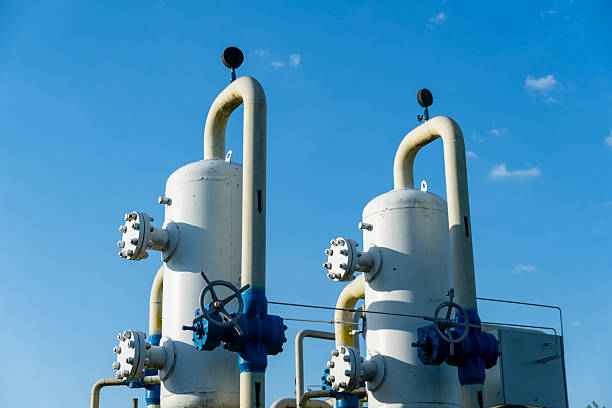
Expansion vessels play a key role in heating, cooling, and water systems. In Dubai, where modern infrastructure meets extreme weather, understanding the correct type and standard of expansion vessel is vital. This guide explains how expansion vessels work, the common types used in the UAE, and the standards that Expansion Vessel Manufacturer.
Understanding the Function of an Expansion Vessel
What Is an Expansion Vessel?
An expansion vessel is a pressure-maintaining component. It absorbs excess water pressure in closed heating and cooling systems. When water heats up, it expands. This causes a rise in pressure. The vessel acts as a buffer to prevent damage to pipes, boilers, or tanks.
Why Are Expansion Vessels Essential in Dubai?
In Dubai’s climate, cooling systems are in high demand. Expansion vessels help stabilize pressure in chilled water systems, HVAC units, and solar heating installations. They are crucial in both residential and commercial applications.
Common Types of Expansion Vessels in Dubai
Diaphragm Type Expansion Vessel
This is the most common type. It uses a flexible rubber membrane to separate air and water. It is compact and suitable for most residential systems.
Bladder Type Expansion Vessel
These vessels contain a replaceable bladder. This allows for longer lifespan and easier maintenance. Bladder types are widely used in large-scale commercial setups across Dubai.
Solar Expansion Vessel
Designed for solar thermal systems, these vessels handle higher temperatures. They are built with special diaphragms and anti-corrosion coatings.
Potable Water Expansion Vessel
Used in drinking water systems, this type meets hygienic standards. It helps manage pressure in water heaters and domestic pipelines.
Key Standards Followed by Manufacturers in Dubai
European Norms (EN Standards)
Many expansion vessels in Dubai are manufactured according to EN 13831. This standard covers design, safety, and performance requirements for pressure equipment used in heating systems.
ASME Standards
Some Dubai-based projects follow ASME Section VIII guidelines. These standards are recognized globally and used for vessels operating under higher pressures.
Dubai Municipality and Civil Defense Regulations
Manufacturers must comply with local regulations. Dubai Municipality and Civil Defense inspect systems to ensure safety and functionality. Certifications and approvals from these authorities are essential before installation.
Factors to Consider When Selecting an Expansion Vessel
System Type and Size
The type of system—heating, cooling, or potable—affects the choice. System size determines the vessel’s volume and pressure capacity.
Operating Pressure and Temperature
Every expansion vessel has limits. You must select a vessel that matches the system’s maximum pressure and temperature.
Installation Location
For indoor or outdoor use, the vessel’s material and coating should resist corrosion and extreme heat. Dubai’s weather conditions require durable, weather-resistant units.
Maintenance Access
Ease of access for inspection and servicing is important. Bladder type vessels are easier to maintain than diaphragm types in some cases.
Applications of Expansion Vessels Across Dubai
Commercial HVAC Systems
Dubai’s high-rise buildings and malls use chilled water systems with expansion vessels to control pressure variations.
Residential Water Heating Systems
Expansion vessels protect domestic water heaters and plumbing lines from pressure surges, improving system lifespan.
Industrial and Solar Systems
In solar-powered water heating or industrial cooling systems, specialized expansion vessels ensure pressure stability and safety.